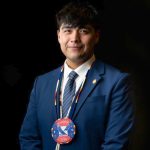
Guest Column: Pueblos join forces to oppose Grand Canyon Escalade Project
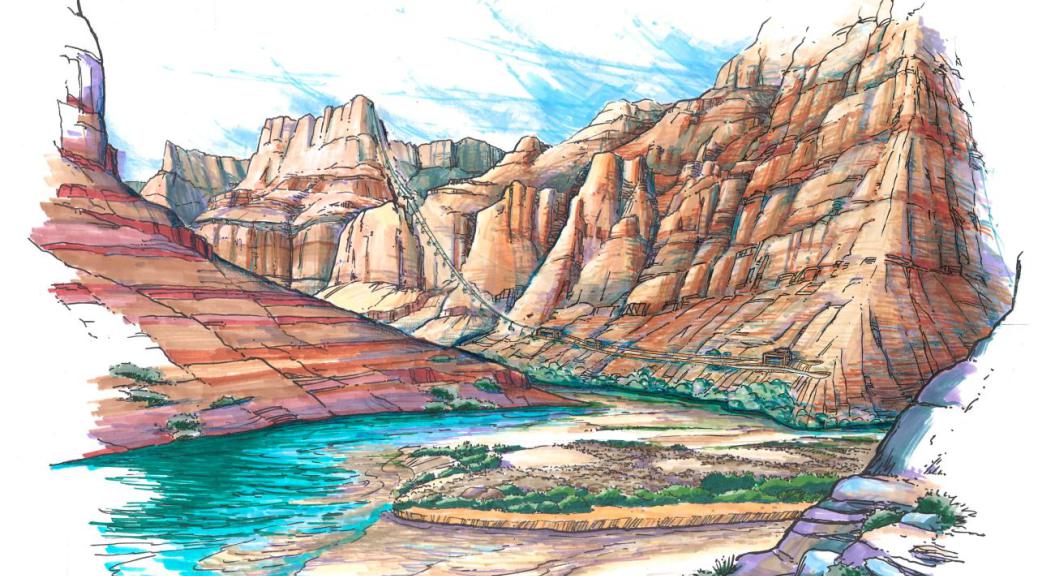
Artists rendering of the proposed gondola tram at the Confluence, by the Grand Canyon Escalade proponents.
The Pueblo people have historically come together to join forces against threats to their land, culture and lifeways. On Aug. 18, 2014, another historical coming together to protect the confluence of the Colorado River and the Little Colorado River, took place in Zuni Pueblo and resulted in unanimous opposition to the Grand Canyon Escalade Project by the governors of Zuni Pueblo, Acoma Pueblo, Laguna Pueblo and the Hopi Tribe.
Ongtupqa, the Grand Canyon, is spiritually significant to the Hopi, Zuni, Acoma and Laguna people.
Hopi Tribal Chairman Herman G. Honanie; Vice Chairman Alfred Lomahquahu; Hopi Tribal Council members George Mase and Lamar Keevama; Arlen P. Quetawki Sr., governor, Zuni Pueblo; Fred S. Vallo Sr., governor, Acoma Pueblo; and Richard B. Laurkie, governor, Laguna Pueblo, all voiced their unanimous opposition on behalf of their respective governments.
In 2012, when Hopi religious leaders voiced their concerns related to sacred sites, the Hopi Tribe enacted Resolution H-113-2012 in opposition to the Escalade Project. The Hopi Tribe called on other tribes, the Inter-Tribal Council of Arizona, National Congress of American Indians, and the National Park Service to join the Hopi Tribe in opposing the commercial development.
Since that time the Hopi Tribe has voiced our concerns to the Navajo Council, to Navajo President Ben Shelly and we are actively pursuing all avenues of opposition to the Grand Canyon Escalade Project.
On June 16, 2014, Zuni Pueblo enacted Resolution No. M70-2014-Q066, asserting aboriginal and ancestral ties to the Grand Canyon, their relationship with the canyon through sacred sites, shrines, springs and pilgrimages to the canyon and strong opposition to the proposed Grand Canyon Escalade Project.
On Aug. 20, 2014, the Zuni Pueblo and Hopi Tribe formalized their opposition by petitioning the All Pueblo Council of Governors to support the coalition of the Hopi Tribe, Zuni, Acoma and Laguna Pueblos in their sincere efforts to protect the confluence against commercial development and wrongful exploitation that threatens traditional cultural properties shared by several tribes who have a direct religious connections to the Grand Canyon.
Should the Grand Canyon Escalade Project become a reality, several identified sacred shrines will be disturbed or erased. Sacred sites cannot simply be moved or documented under federal regulations called “mitigation.” Adverse impact on the animals, plants, water and landscape is inevitable as they are part of life present in the canyon and deserve reverence and respect.
The Grand Canyon, the Confluence, the Little Colorado River all have place names that have significance to Native Americans and the general public, described as a “church without a roof” in the New York Times on Aug. 10, 2014.
However, it is much, much more to the Hopi Tribe. The geological landscape of the Grand Canyon is part of the aboriginal lands of the first inhabitants of the Colorado Plateau. The Zuni, Laguna, Acoma and Hopi will continue to exercise their religious obligations and pilgrimages to the ancestral sacred sites in the Grand Canyon.
Ongtupqa, in its natural state, is certainly eligible as a World Heritage Site and the Hopi Tribe calls on Ann Kirkpatrick and the Arizona delegation to join the Hopi, Zuni, Acoma and Laguna pueblos to protect this national heritage site.
The entire region of the Grand Canyon and Colorado Rivers continues to be under threats that will forever change the landscape. It is of paramount importance that the Grand Canyon Escalade Project be seen as a very real threat to the religious freedom of Native Americans who view the Grand Canyon as their place of worship.

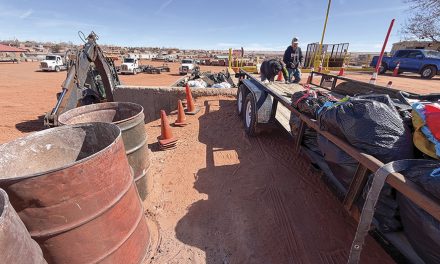
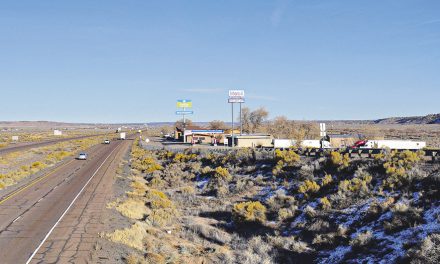

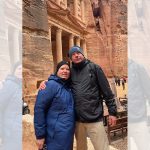



 Highway 264,
Highway 264, I-40, WB @ Winslow
I-40, WB @ Winslow